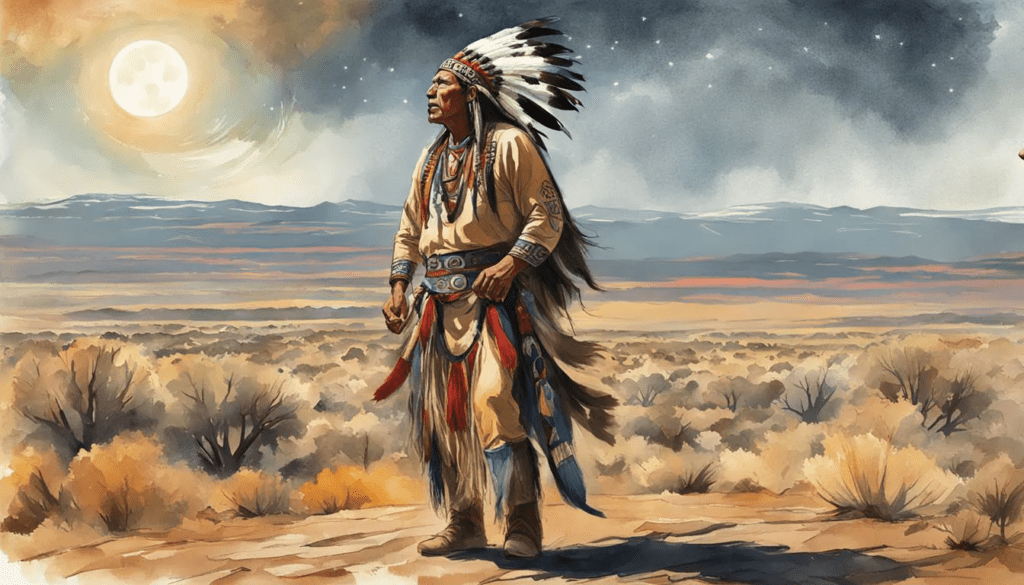Solar Eclipse Myths and Superstitions in 2024
Eclipse Superstitions and Local Folklore Across the United States and Adjoining Areas

The Cosmic Battle of the Sun and the Moon
In the rich tapestry of American folklore, the solar eclipse is often seen as a celestial battle between the Sun and the Moon. Among the Native American tribes of the Southwest, it is believed that the Sun is a resplendent man and the Moon his sister. When a solar eclipse occurs, it is thought to be the result of celestial serpents or other malevolent forces attempting to devour the Sun, a sign of cosmic discord that can be alleviated by the actions of the community on Earth.
The Sun’s Sickness and the Fires of Earth
According to the Aymara people of Bolivia, an eclipse represents the Sun’s sickness, a condition so dire that it is believed to foretell the transformation of humans into animals and their subsequent extinction. To combat the darkness and restore balance, fires are lit on hilltops, a ritual intended to warm the Earth and ward off the shadows of the eclipse.
The Giant Frog and the Celestial Swallow
Vietnamese legend tells of a giant frog that swallows the Sun, a myth that reflects the ancient world’s struggle to understand the natural phenomenon. The frog’s actions are seen as a cosmic disruption, one that can only be rectified by the intervention of the lord of Hahn, who persuades the frog to release the Sun from its grasp.

The Moon’s Quarrel and the Earth’s Response
In Transylvanian folklore, an eclipse is a manifestation of the Moon’s anger, a response to humanity’s misdeeds. The people of the region once believed that by making loud noises and banging pots and pans, they could scare away the demon causing the eclipse, a way to reestablish harmony in the heavens and on Earth.
The Eclipse Weapon of the Ancient Emperors
In some cultures, the solar eclipse was not just a natural wonder but a tool wielded by emperors to assert their power. The ability to predict and control the eclipse was a sign of divine right, a belief that underscored the emperor’s authority and the cosmic significance of their rule.
The Cosmic Eclipse Warning Sign
Across many societies, the eclipse was seen as a harbinger of doom, a celestial omen that foretold disaster and death. This superstition was so deeply ingrained that even in the 16th and 17th centuries, eclipses were blamed for various calamities, a testament to the enduring fear and fascination with these cosmic events.
The Eclipse and the Birth of Legends
From the mythical dogs of Korea trying to steal the Sun to the Hindu deity Rahu swallowing the Sun, the stories surrounding eclipses are as varied as they are ancient. These tales, passed down through generations, serve as a reminder of humanity’s enduring attempt to make sense of the universe’s mysteries.
The Eclipse’s Modern Echoes
Despite the advancement of science, the superstitions surrounding eclipses persist. In many cultures, eclipses continue to be associated with negative outcomes, from personal misfortune to global catastrophe. This reflects the lingering influence of ancient beliefs and the deep-seated unease that can accompany the sudden darkening of the sky.
The Eclipse as a Teaching Moment
In some traditions, such as the Batammaliba’s, an eclipse serves as a moral lesson, a time for reflection on human behavior and the need for harmony. The belief that conflicts on Earth can affect the celestial bodies underscores the interconnectedness of all life and the importance of peace and unity.
The Sun’s Return and the Restoration of Light
Whether seen as a frog, a dragon, or a celestial being, the Sun’s return after an eclipse is always cause for celebration. The restoration of light is a universal theme in eclipse folklore, a symbol of the enduring cycle of nature and the resilience of life in the face of cosmic shadows. –USNEWSNBUZZ
Must Read Blogs:
- How Did Julie Andrews Lose Her Voice?
- Understanding the Potential Ban on TikTok: Insights Post House Advancements in the Aid Package
- Grammy Winner Star Mandisa dead at 47: A Legacy That Lives On
- Florida Communism Bill (House Bill 1557): Discussion and Controversy
- Former Florida governor and US senator Bob Graham passed away at 87.

